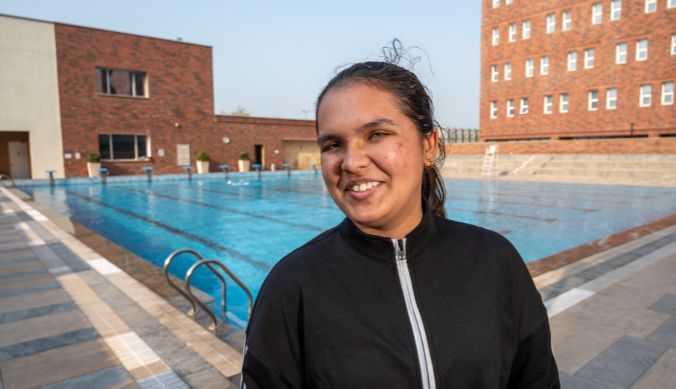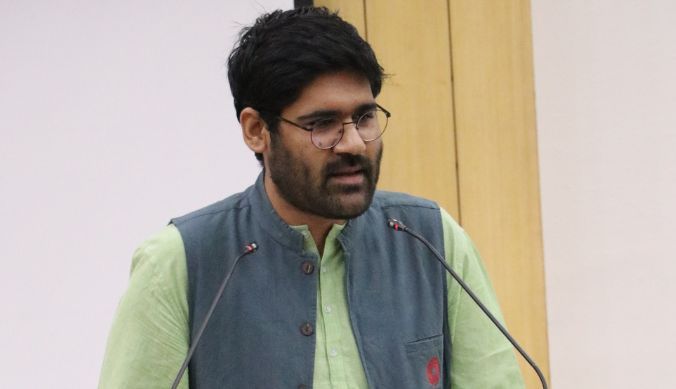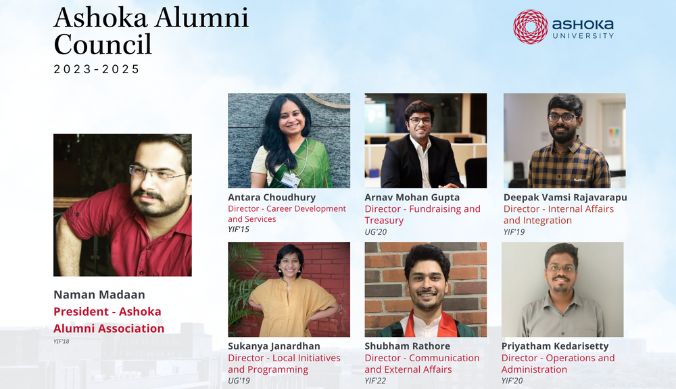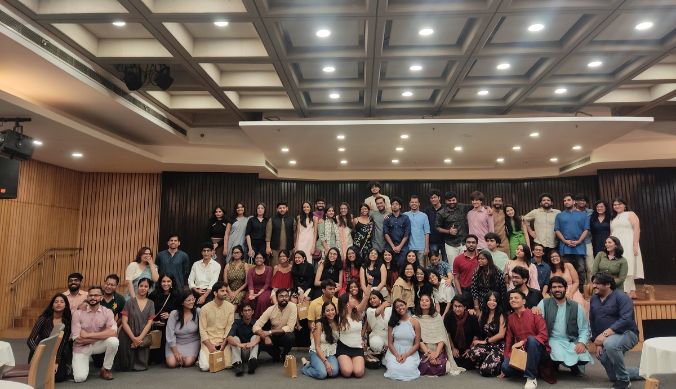Decoding COP26 – Ashoka student’s account of environmental advocacy
Abhiir Bhalla from the UG batch 2022, currently majoring in Political Science shares his views about the recently concluded COP26 and India’s position in it.

Office of PR & Communications
13 January, 2022 | 4m readAbhiir Bhalla’s name resonates with environmental activism. Having suffered from seasonal allergies accompanying the recurring bouts of air pollution in North India, he took on the battle to fight against air pollution and is now a fierce advocate for a greener world. According to him, a collective effort and greater investment are needed to bring change around the world. Following his appearance on BBC last week, we asked him to expand his views on the 2021 United Nations Climate Change Conference, also known globally as COP26 summit.
From “phasing out” to “phasing down” on coal – what did it mean at the COP26 summit? Did the change of wording rather hamper the global efforts to set sustainable climate goals?
As an environmentalist, I found it quite unfortunate that there was this eleventh hour change in the wording of the COP26 agreement. This was literally done probably a day or two before or on the last day when COP26 was winding up. This change essentially meant that by eliminating coal we would be able to reduce the usage of coal in our respective countries (India and China). And as large as these two countries are with their huge population and with them being the world’s fastest developing economies, that will have some major implications in terms of the sustainable development goals and hampering global efforts with regards to the coal commitments.
It is definitely unfortunate that this last minute change in wording was introduced. In the Indian context perhaps it was necessary because almost 70% of the country is powered to date by coal and just two or three weeks ago we saw that there was a severe coal crisis across the country, where we were literally fumbling to get enough coal. There were scheduled power cuts all across Haryana and certain other states in the North. That just goes to show how dependent India really is on coal. There are many solutions to the problem but given the current situation, requesting for this change in wording was justified for India.
India’s pledge of going net zero in terms of emissions by 2070 has been applauded heavily. How do you think India can achieve this when more than 50% of the country’s electricity still comes from coal?
I think one point to be noted here is that India actually was an outlier at the COP26 summit because Prime minister Narendra Modi in his speech mentioned that India would meet net zero by 2070 which is much later than the international agreement which was originally discussed and which many other countries are still trying to abide to. Scientists and analysts from the field of environment and those who track policy, economics and development also concurred that India meeting net zero by 2030 was next to impossible.
Scientists are already arguing that the 1.5 degree celsius threshold of global warming which was established in the Paris Agreement a few years ago may be too late to achieve that target. They feel that if we continue on the trajectory that we are on, it is very easily possible that we will surpass that 1.5 degree commitment. In light of that of course this is not good because we’ve set the target back by a good 30 to 40 years. At the same time what India has done is that we have made smaller yet significant targets. So for example, I believe Prime minister Modi committed that the Indian Railways will be net zero by 2030. Now anyone who stays in India knows the scale of the Indian Railways, the size, the employment, the dynamics, everything.
Although sceptics have said that even by 2070 it would be difficult, I am rather optimistic that just like India surpassed its solar commitments in terms of meeting 400 gigawatts production and far exceeded that ahead of the deadline, we should be well off on our way to be net zero by 2050-2055.
Now Talking about how India can achieve this, I think there is a lot to be said in terms of the government’s efforts in terms of renewable energy. India has done a lot for solar power. We are one of the leading countries in terms of solar power. But given that India has a good 300 solar days out of the year of 365 days, there is so much more that we can do.
So continuous push on the paddle to drive focus on solar energy at least until we find a better solution like civilian nuclear energy, driving focus on expanding our public transportation system while also looking at moving our shipping industry which is also a huge polluter towards green hydrogen. Those I think are the key three or four solutions which will take us in the right direction.
Climate action requires equal involvement from businesses and entrepreneurs along with government bodies. Your comment.
Climate action does require equal involvement from all stakeholders not just businesses, entrepreneurs, government bodies but also civilians. As an environmentalist, an unfortunate trend that I have noticed is that a lot of us civilians tend to shift the blame.
All stakeholders are equally important because right now we are in a vicious cycle where civilians are waiting for government and corporate and they are saying that people do not seem to care so individual action goes a long way in sort of getting the ball rolling because individual actions become societal actions and that in turn leads to governmental action and when there is governmental action, they will introduce and reinforce environmental policies which then businesses need to adopt.
In the case of businesses perhaps they move into sustainable alternatives because they have seen that generation-z and millennials have a greater preference for such products. There is an overwhelming demand in people of my generation who are privileged enough to have bamboo toothbrushes which was perhaps something that was not there five or seven years ago.
However, what has been good is that in spite of all of this, there are FMCG companies such as Unilever and Nestle which have commitments to meet net zero by 2030 on a global level including India. If you take two of the largest FMCG companies and if they’re saying our emissions in India will be net zero, then that in itself is also a very big achievement.
What is the road forward?
The road forward essentially lies in our increasing individual action and building societal awareness because right now we have to realise that environmental conservation is still a very privileged concept. It is still a concept which is very central or occurs only in Tier 1 and Tier 2 cities. But something that I find interesting is that Tier 3 cities are already doing their bit. It is just that unfortunately in urban areas a lot needs to change. Let me give you an example. If you order any environmentally friendly products let us say from Amazon, that product is still coming through an extremely polluted supply chain.
We also need to make environmental education more inclusive. Right now the schools do talk about environmental education and NCERT has included it to a certain extent in its curriculum. All of it is very tokenistic. It is important to realise that we need to overcome this tokenistic mention of climate education within our syllabus and we need to make that more holistic and inclusive and thereby bring societal action.
The focal point or the turning point which will determine and ignite the net zero movement in India will greatly depend on what we see in the next three to five years because if we continue to operate in silos then it is going to be very problematic. Concerted effort is required by all including the government, industry and individuals to achieve our net zero targets and importantly, make life healthy for every citizen.
Abhiir was recently interviewed by BBC about COP26. The interview is accessible here.













